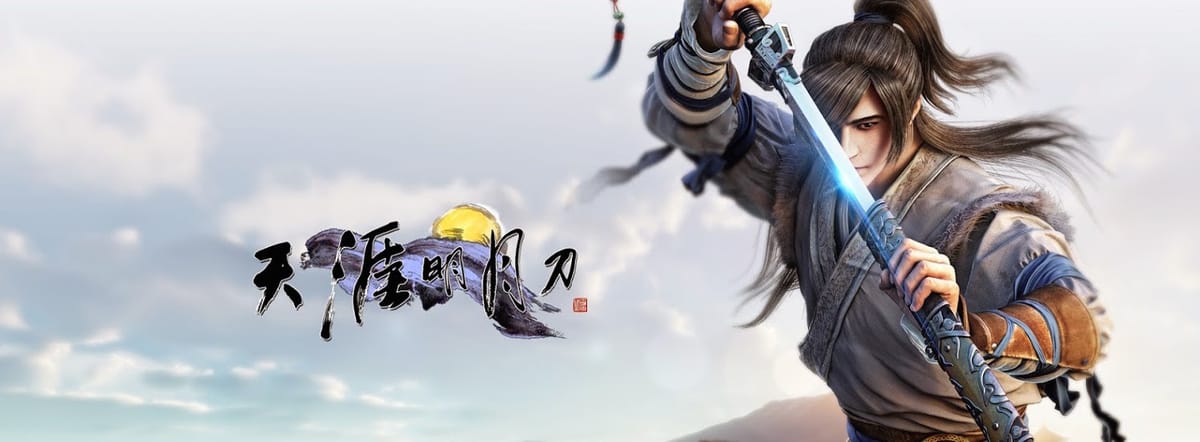Tencent Draws On IP For Production Plans
Tencent has made several announcements about its move into film and TV production, revealing a focus on intellectual property (IP) that potentially gives it a leg up over its digital rivals.

Tencent has recently made several announcements about its move into film and TV production, revealing a focus on intellectual property (IP) rights that potentially gives it a leg up over its digital rivals.
Since first confirming a move into production in September 2014, Tencent has remained fairly quiet on the details, while Alibaba has made a string of announcements over the past year about projects that Alibaba Pictures will be involved in.
But Tencent has now officially launched its production arm, Tencent Pictures, which it says will “develop IPs into valuable franchises that will generate more returns over the long-term, leveraging our strengths in social, cross-platform capability and big data.”
The Shenzhen-based, Hong Kong-listed company – which became a digital heavyweight through social media and online gaming – has vast IP resources at its disposal, including comic books, gaming and internet literature.
Among the properties that Tencent has identified for adaptation are three comics – I’m Baixiaofei, The Matchmaker Fox and Shrines Scroll – and several Tencent games including QQ Speed, QQ Dancer and Moonlight Blade.
The company also plans to adapt internet novels such as Mulan Has No Elder Brother, Going Back To The Past To Become A Cat and Ling Jian Mountain. Its also partnering with Guo Jingming, creator of the Tiny Times franchise, to adapt his novel Critical across film, anime and video games.
On the international front, Tencent will invest in Legendary Pictures’ big-budget Warcraft, a movie based on the World Of Warcraft game, and is partnering with Hong Kong-based Celestial Pictures on a remake of Shaw Brothers’ classic The Magic Blade.
Tencent COO Mark Ren has been appointed chairman of Tencent Pictures, while Edward Cheng, Tencent vice president, will become CEO of the production arm. Tencent Pictures is divided into three studios – Dameng for adapting anime, Jinhua for video games and Heiti for literature.
“Movies will no longer be an isolated experience,” said Cheng at the launch. “Their value is no longer confined to the box office, but will also be realised across literature, animation, games, derivatives and other multi-IP operators.”
IP has become the new buzzword in China as it strives to build out a content industry that can take on Hollywood at the game of creating multi-platform franchises with a built-in fanbase. Fortunately for Tencent, it’s already involved in what looks like China’s first ever major franchise – CGI/live-action hybrid Monster Hunt, which has made $382m at the China box office and sold widely overseas.
Although Tencent doesn’t own the source material, it was an investor in Monster Hunt, which has already spawned merchandising and sequels. The company has also produced a reasonably successful animated feature franchise based on its popular Roco Kingdom video game.
Of course, for Tencent, as for its competitors Baidu and Alibaba, producing entertainment content is all part of wider strategy to build out the digital ecosystem for its main revenue generators – in Tencent’s case digital payments and advertising.
Speaking at the recent Tencent MIND Conference 2015 in Beijing, Tencent senior executive vice president SY Lau espoused the concept of “Neo-Content” – a combination of information, products and services that connects everybody in China, down to the smallest villages, and creates a “cross-boundary” experience for the user.
He used the example of the National Basketball Association (NBA), with which Tencent has a digital partnership, to explain what cross-boundary means – it’s not just the matches that hooks viewers, but also the related audio/video content, audience interaction and the atmosphere of live games.
“The development of the internet-based economy in China has already exceeded that of many Western countries,” said Lau. “In addition to continued infrastructure buildup, we need to develop Neo-Content quickly in order to sustain our competitive advantage, which is critical for China to transform itself towards ‘created in China’ and even ‘intelligently manufactured in China’.”
Tencent Pictures CEO Edward Cheng will be talking about the company’s approach to IP this weekend at the Asian Film Market’s E-IP Forum in Busan, South Korea.




